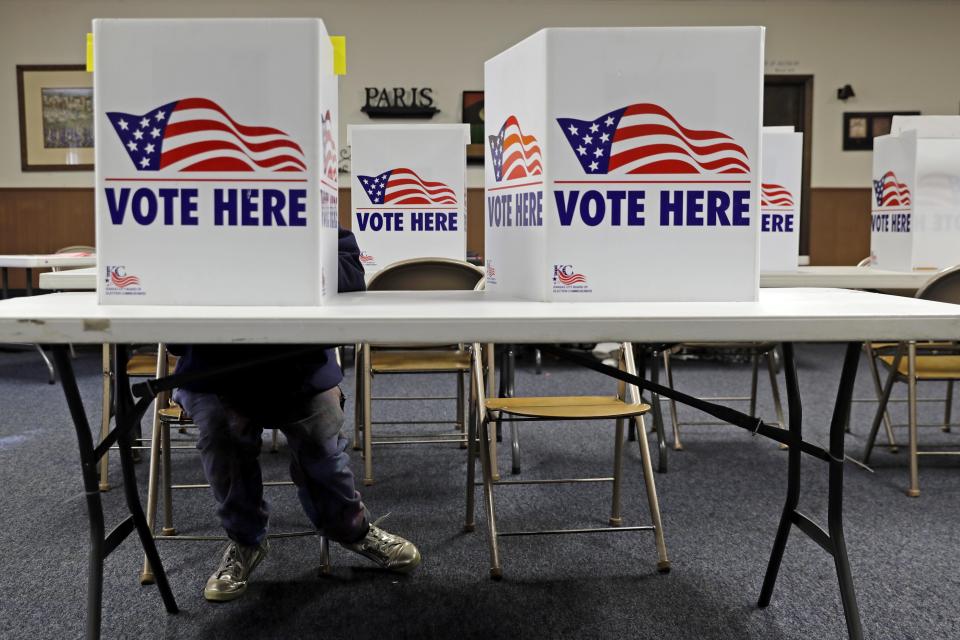Give popular vote priority in presidential elections
It's a truism most Americans take for granted: Elected officeholders win by getting a majority of the vote. The concept is usually the rule, with one notable exception: president and vice president. For those positions, winning the popular vote nationally doesn't guarantee victory.
Florida can change that. Bills before the Florida Legislature will put our state along with others in a national compact to ensure that the winners of the November 2024 presidential election are the ones who get the most votes. All it takes to make the change is for states with a total of 270 electoral votes to pass laws to join the compact.
Florida shouldn't be left out in the cold.
The National Popular Interstate Compact is a bipartisan effort to make voting in America count again. Right now, presidential campaigns in the general elections focus on "battleground" states that attract the bulk of the candidates' time and resources. Voters in those states get the attention, while the rest of the country is treated more like disinterested spectators than participants. The result is lower turnout as voters in "blue" and "red" states believe their votes don't count.
A civics lesson is in order. Presidents and vice presidents aren't elected by popular vote. The Constitution provides for an indirect election, by a group of state-appointed "electors," known as the Electoral College. The Constitution doesn't specify how electors are to cast their votes. However, most states have adopted "winner-take-all" laws that award elector votes to whomever wins the most votes in that state.

Unfortunately, these laws make it is mathematically possible to win 270 electoral votes while still losing the nationwide popular vote. Such results override the will of a majority of Americans and undermine the winner's legitimacy and ability to lead.
Five of the 45 presidents lost the popular vote but won their elections — most recently George W. Bush and Donald Trump. The compact wouldn't eliminate the Electoral College or require a change in the Constitution, two high hurdles. All it would do is allow states to direct their electors to give their votes to the winner of the national popular vote, a move that would change the way presidential campaigns are conducted and include more Americans in the process.
To date,15 states and the District of Columbia have passed laws requiring their electors back the winner of the national popular vote in 2024. That's 195 electoral votes. The change will be complete once enough states join and the required 270 total is reached,
The change might be a huge reform for the nation but presents a tough sell in Florida, one of those "swing" states that benefits from the outsized attention and the vast amount of money that comes with a presidential election. The sponsors of HB 69 and SB 584 — state Sen. Victor Torres Jr., D-Orlando and state Rep. Joe Geller, D-Aventura — may be on the right side of history but the wrong side of the political aisle to make it happen. Republican legislators aren't likely to change the way Florida electors vote, and Gov. Ron DeSantis, a presidential aspirant, isn't likely to back the compact.
Too bad. Florida may enjoy being battleground state now, but there are signs that its influence on presidential elections could change.
Florida went for Republicans in 2020, but President Joe Biden handily won that election without much help from the Sunshine State. Florida's 30 electoral votes could again back a loser, if Biden and the Democrats regain their political footing and carry the same states that put him in the White House or add new ones in the 2024 election.
The state may also lose its "swing state" luster. For the first time in history, registered Republican voters outnumber registered Democrats and outside interests have noticed.
The Democratic Governors Association, according to a Politico report, had begun to "deprioritize" participating in the upcoming governor's race, a report the association later disputed. Even so, if Florida is perceived as being too politically uncompetitive, the state will lose out on millions in campaign contributions that would normally go to to television ads and get-out-the-vote campaign operations.
Of course, the organizers of the compact could find their 75 missing votes, leaving Florida on the outside looking in. As the nation's third most populous state, Florida deserves better than being left on the sidelines.
This article originally appeared on Palm Beach Post: Editorial: Elevate national popular vote over Electoral College

